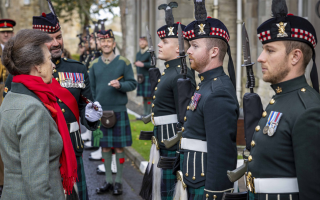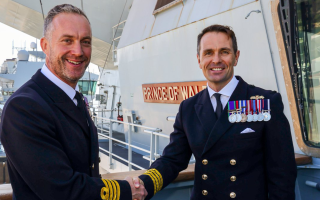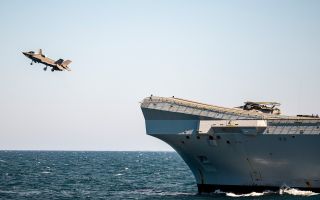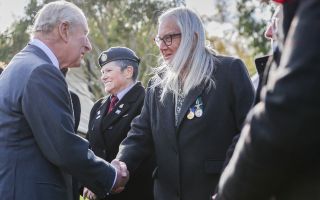Tri-Service
David Cameron's Defence And Military Legacy
As opposition leader, David Cameron was vocal on military matters, attacking the Labour government over kit and shortages of helicopters in Afghanistan.
He demanded a public inquiry into the Iraq War long before it finished, and was cultivating an image as a champion of the forces.
He became Prime Minister in 2010 at the height of Britain’s deployment to Afghanistan, more than 10,000 personnel.
Within weeks he visited Helmand and announced he would make good on his election pledge to double the operational allowance.
It earned him some goodwill, but for some it didn’t last long.
A few months the Prime Minister stood up in Parliament and unveiled a defence review that axed ships, planes, and jobs. It left Britain without carrier strike for a decade, no maritime patrol planes, and 12,000 servicemen and women made redundant.
It was part of the government’s austerity drive combined with a need to balance the MoD’s overstretched books. Almost 8% was cut from the defence budget.
He had already announced that British combat troops would be home from Afghanistan by the end of 2015, before other NATO leaders agreed the same timetable.
As Britain’s forces got smaller, David Cameron had plenty of work for them.
Along with the French President he led the international campaign that led to intervention in Libya. British fighter jets sent in 2011 to bomb in support of an uprising against Colonel Gaddafi.
The results of that intervention remain controversial, some say it led directly to the rise of Islamic State in the country, but Mr Cameron defends the decision to this day.
There was Mali too; a training mission for the country’s troops fighting an Islamist insurgency, and then Op Shader, with air strikes, training and support in the fight against Islamic State.
It is a fight he has branded as a generational struggle.
But he has not always been able to intervene where he would have liked.
In 2013 he had hoped to launch strikes in Syria, against the Assad regime. MP’s refused to back him. “I get that, and the government will act accordingly” he told them, failing to conceal deep frustration.
It damaged his world standing, and arguably Britain’s too.
General Sir Richard Shirreff, who was the top British officer at NATO for much of Mr Cameron’s premiership, got to see how other nations viewed the UK.
“Britain had stepped forward, and then it stepped back. That sense that Britain was there particularly ready to support the Americans was very much put in jeopardy”.
He believes Britain’s recent ‘minimal’ contribution in Afghanistan also has looked bad to others.
“Real surprise from particularly the Germans and Italians that they were seen to be America’s most reliable allies”
General Shirreff does see positives in the Cameron legacy, including the writing into law of the Armed Forces Covenant.
It has not delivered the perfect level playing field for serving personnel, families and veterans but independent scrutiny says it has delivered improvements.
David Cameron leaves Britain with smaller Armed Forces, but some of the equipment they lost will be back - two aircraft carriers, new maritime patrol planes and F35 fighter planes.
The defence budget will rise at least slightly each year until 2020, with last year’s commitment to keep meeting NATO spending targets.
His role in getting other countries to stop cutting and start heading back to that target at the Wales NATO summit may end up what he is best remembered for in the alliance.








